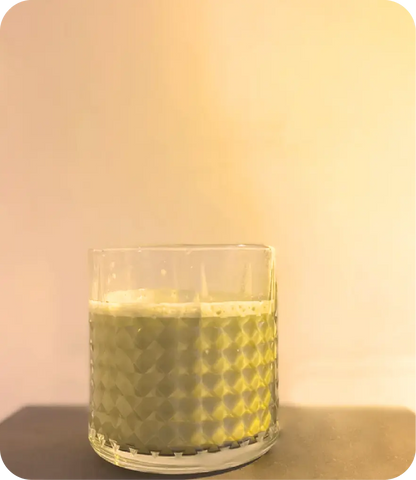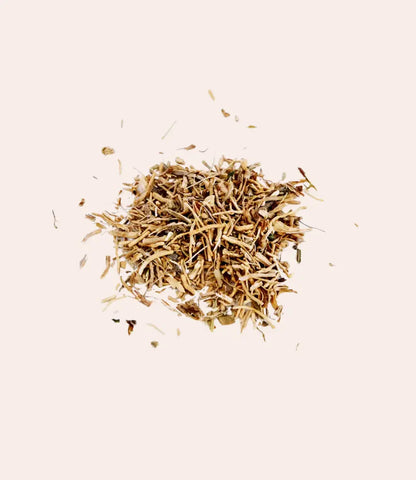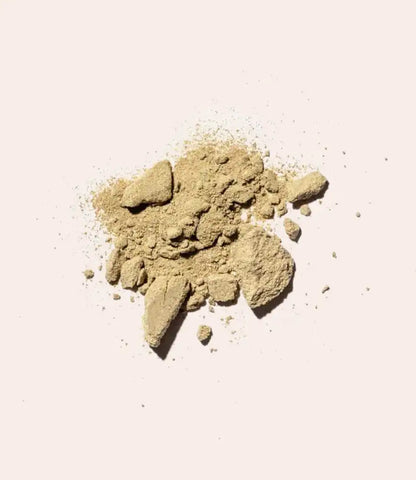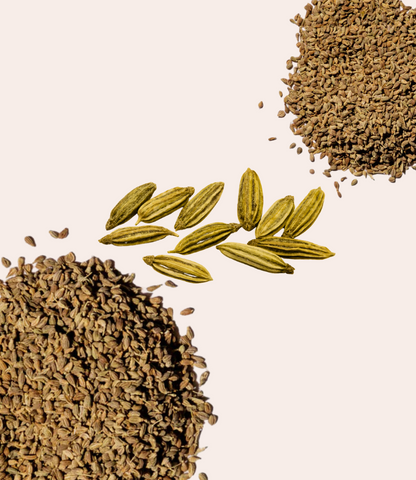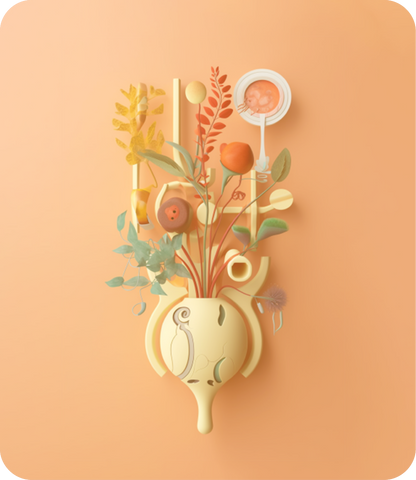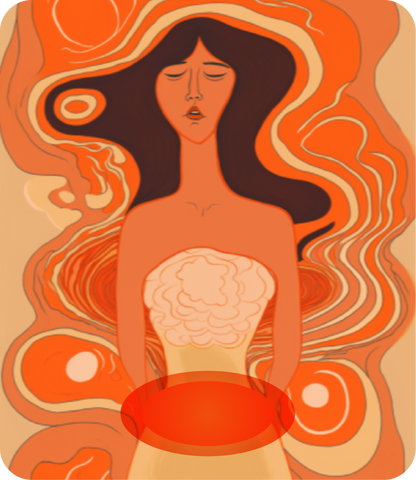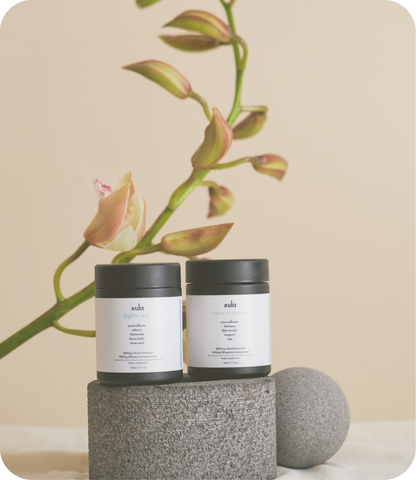
Natural Remedies for Treating Gut-Related Hormonal Imbalances: Tips for Restoring Balance
If you've been experiencing symptoms like bloating, digestive discomfort, irregular periods, or mood swings, it's possible that gut-related hormonal imbalances could be to blame. While there are medical treatments available, many people prefer to try natural remedies first. In this post, we'll discuss some effective natural remedies for treating gut-related hormonal imbalances and restoring balance to your body.
Gut-Related Hormonal Imbalances: What are they?
Before diving into remedies, it's important to understand what gut-related hormonal imbalances are and what symptoms they can cause. Gut-related hormonal imbalances refer to a disruption in the balance of hormones in the body that can be caused by poor gut health. The gut contains millions of bacteria, collectively known as the gut microbiome, which play a crucial role in many bodily functions, including hormone regulation.
When the gut microbiome is imbalanced, it can lead to inflammation and other problems that affect hormone balance. Some common symptoms of gut-related hormonal imbalances include:
- Digestive discomfort, such as bloating, gas, or constipation
- Irregular periods, heavy bleeding, or PMS symptoms
- Mood swings, anxiety, or depression
- Fatigue or low energy levels
- Skin problems, such as acne or rashes
The Role of Diet
One of the most effective ways to restore gut health and balance hormones naturally is through dietary changes. Here are some foods to focus on:
- Fiber-rich fruits and vegetables: Fiber helps keep the digestive system running smoothly and can improve gut health by feeding beneficial gut bacteria. Aim for at least 25 grams of fiber per day.
- Probiotic-rich foods: Probiotics are beneficial bacteria that can help restore gut health and balance hormones. Examples of probiotic-rich foods include yogurt, kefir, sauerkraut, and kimchi.
- Healthy fats: Omega-3 fatty acids found in fatty fish like salmon, as well as nuts and seeds, can help reduce inflammation and support hormonal balance.
- Anti-inflammatory foods: Some foods, like turmeric and ginger, have anti-inflammatory properties that can help reduce inflammation in the gut and balance hormones.
On the other hand, certain foods can worsen gut health and hormone imbalances. Some of these foods include:
- Processed foods: Processed foods often contain high amounts of added sugars, unhealthy fats, and artificial ingredients that can negatively affect gut health and hormone balance.
- Gluten: Some people are sensitive to gluten, which can lead to gut inflammation and hormone imbalances.
- Dairy: Dairy can be a trigger for some people and lead to digestive discomfort and hormone imbalances.
Gut-Healing Supplements
In addition to dietary changes, natural supplements can be helpful for restoring gut health and balancing hormones. Here are some supplements to consider:
- Magnesium: Acts as a cofactor for many enzymes involved in the digestion and absorption of food. These enzymes help break down carbohydrates, proteins, and fats into smaller, absorbable molecules. Adequate magnesium levels contribute to the efficient functioning of these enzymes, promoting overall digestive health. Magnesium also has anti-inflammatory properties, which can be beneficial for individuals with inflammatory bowel conditions like Crohn's disease or ulcerative colitis. By reducing inflammation, magnesium may help alleviate symptoms and contribute to the overall well-being of the gut.
- Omega-3 fatty acids: Omega-3s are anti-inflammatory and can help reduce inflammation in the gut, which can improve hormone balance.
- Digestive enzymes: Digestive enzymes can help improve nutrient absorption and reduce digestive discomfort.
However, it's important to talk to your healthcare provider before starting any new supplements to make sure they're safe and appropriate for you.
Stress Reduction Remedies
Stress is a major contributor to hormonal imbalances and gut health problems. Here are some stress-reducing remedies to try:
- Yoga or meditation: These practices can help reduce stress and improve gut health by promoting relaxation and mindfulness.
- Exercise: Exercise is a natural stress reliever and can improve gut healthby reducing inflammation and increasing blood flow to the digestive system.
- Breathing exercises: Focusing on your breath can help reduce stress and promote relaxation.
- Aromatherapy: Essential oils, like lavender and chamomile, can help reduce stress and promote relaxation.
Make Tips a Habit
Incorporating these natural remedies into your daily routine can help restore gut health and balance hormones over time. Here are some tips to make these habits stick:
- Start small: Incorporate one new habit at a time and gradually build up.
- Keep it simple: Don't try to do too much at once. Choose a few key habits to focus on and stick with them.
- Track your progress: Keep a journal to track your symptoms and how they change over time as you incorporate these natural remedies.
- Get support: Find a friend or family member to support you in your journey to better gut health and hormonal balance.
CBD & Other Herbs for Gut-Healing
- CBD, or cannabidiol, is a natural compound found in cannabis plants that has been shown to have anti-inflammatory properties. This makes it a potentially useful remedy for gut-related hormonal imbalances, as inflammation is often a root cause of hormone imbalances.
- Licorice root: This herb has been used for centuries to treat digestive issues and may help reduce inflammation in the gut.
- Marshmallow root: Marshmallow root contains mucilage, a gel-like substance that can soothe and protect the digestive tract.
- Slippery elm: This herb can help soothe digestive discomfort and reduce inflammation in the gut.
Conclusion
Gut-related hormonal imbalances can be frustrating and uncomfortable, but there are natural remedies that can help restore balance to your body. By focusing on dietary changes, supplements, stress reduction, and making healthy habits a part of your daily routine, you can support your gut health and promote hormonal balance. Remember to always consult with your healthcare provider before trying any new remedies or supplements, and track your progress over time to see how your symptoms improve.










